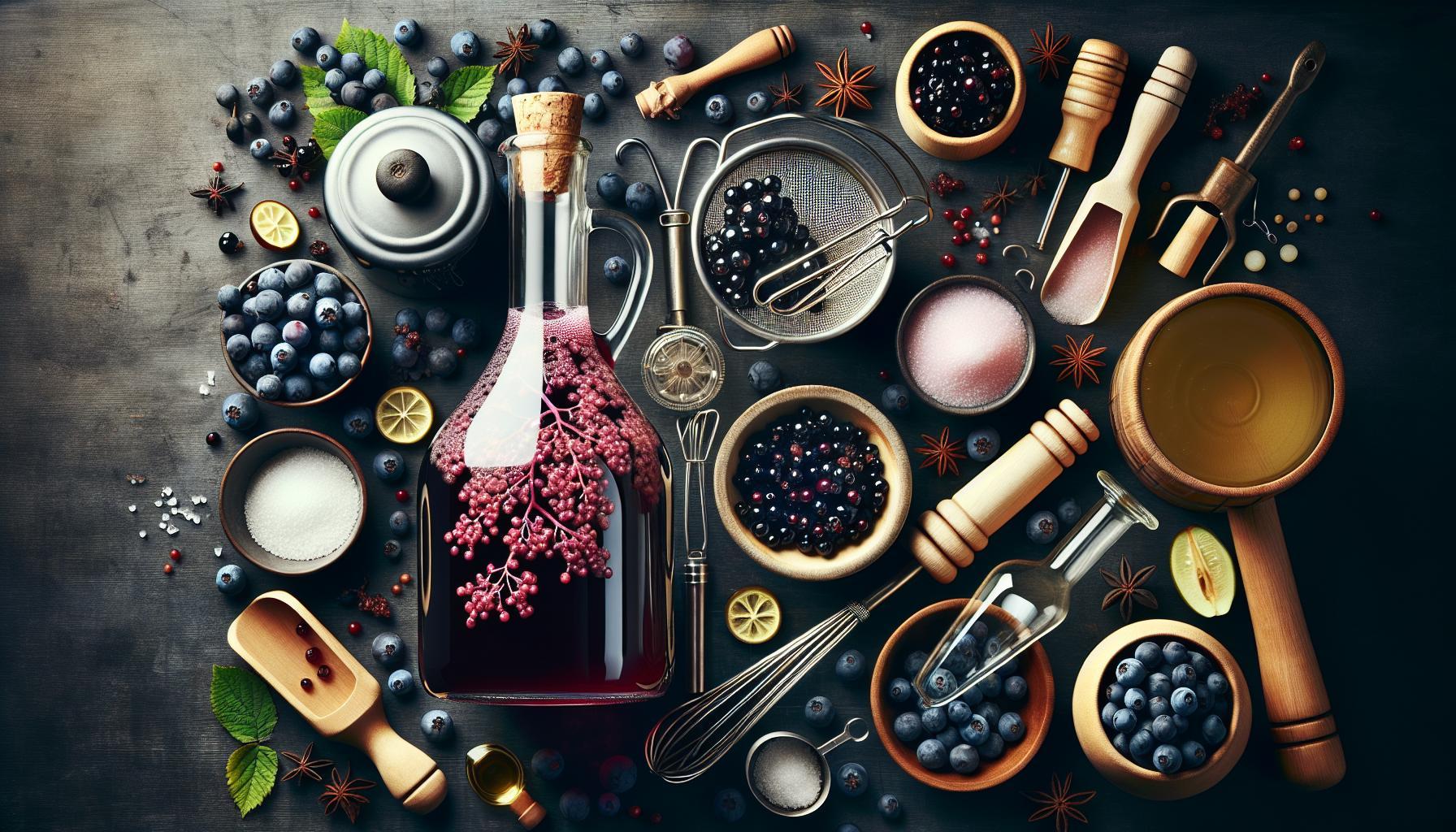Imagine a wine glass filled to the brim with a deep, earthy-hued boreal brew. A wine so rich in taste and layered fetching flavors that it feels like an invigorating spa experience for your taste buds – your very own homemade elderberry wine. This wine isn’t from a fancy vineyard, instead, it originates from a much humbler source – the humble elderberry tree that has been gracing our gardens and countryside for centuries. So, let’s embark on a flavorful journey of making your signature elderberry wine recipe.
Ingredients List
- 4 pounds of elderberries
- 1 pound of raisins
- 2.5 pounds of sugar
- 1 package of wine yeast
- 1 teaspoon yeast nutrient (optional)
- 1 gallon of water.
Please remember, elderberries must be fully ripe and devoid of any leaves or tart.
Instructions
- Start by thoroughly washing the elderberries, then remove all the stems. It’s an unwavering task, but patience pays off with the pure purity of your wine.
- Mash your elderberries and raisins using a potato masher or similar tool. This uncompromising effort helps extract the fruity flavors.
- Boil the water in a large pot and stir in the sugar until it dissolves completely.
- Pour the hot sugar-water mixture over your mashed fruit, then give it a good stir.
- Once cooled down to room temperature, add your yeast and yeast nutrient.
- Keep the mixture in a warm place for a week, stirring daily. On the eighth day, strain the mixture and move the liquid into a demijohn—a vessel that lets the wine breathe without letting any natural nemeses in.
- Let your wine ferment for another month before straining and bottling.
Cooking Time & Servings
The intoxicating essence of elderberry wine needs patience for its full fruition. It’s a long process spanning over a month. This recipe makes approximately 1 gallon of elderberry wine, enough to fill 6 regular-sized wine bottles.
Nutritional Information
The elderberry wine is truly a sweet surrender for one’s senses as well as a step towards a healthier life. Not only is it rich in beneficial antioxidants, but it also contains vitamin C and dietary fiber from the elderberry and raisins—both beneficial for your immune system and digestive health.
Tips and Tricks
Loremaster of the elderberry wine recipe will quickly tell you, the quality of your berries can make or break your brew. Fresh, ripe berries blessed by ample summer sun are sure to yield the best result. If your fruits are slightly underripe, consider adding pectic enzyme to break down the extra pectin.
As we bring this culinary journey to a close, remember that
This richly flavored wine is more than just a delight to your palate—it immerses you in a tradition as old as the hills and a testament to nature’s lilting lullaby, encapsulated in the aroma and taste of the humble elderberry.
Frequently Asked Questions
Q: What does elderberry wine taste like?
A: Elderberry wine has a unique flavor that’s fruity and earthy, a bit like a red wine but with a distinctive elderberry twist.
Q: Can I use honey instead of sugar?
A: Absolutely, replacing sugar with honey can add a different depth of flavor to your wine.
Q: What’s the alcohol content of the wine?
A: This often varies, but typically homemade elderberry wine has an alcohol content around 10-14%.
Q: How long can I store the elderberry wine?
A: If stored properly in a cool, dark place, elderberry wine can last for several years, improving in taste over time.
Q: Can I use frozen elderberries?
A: Yes, you can. Just make sure to thaw them properly before starting with the wine-making process.


